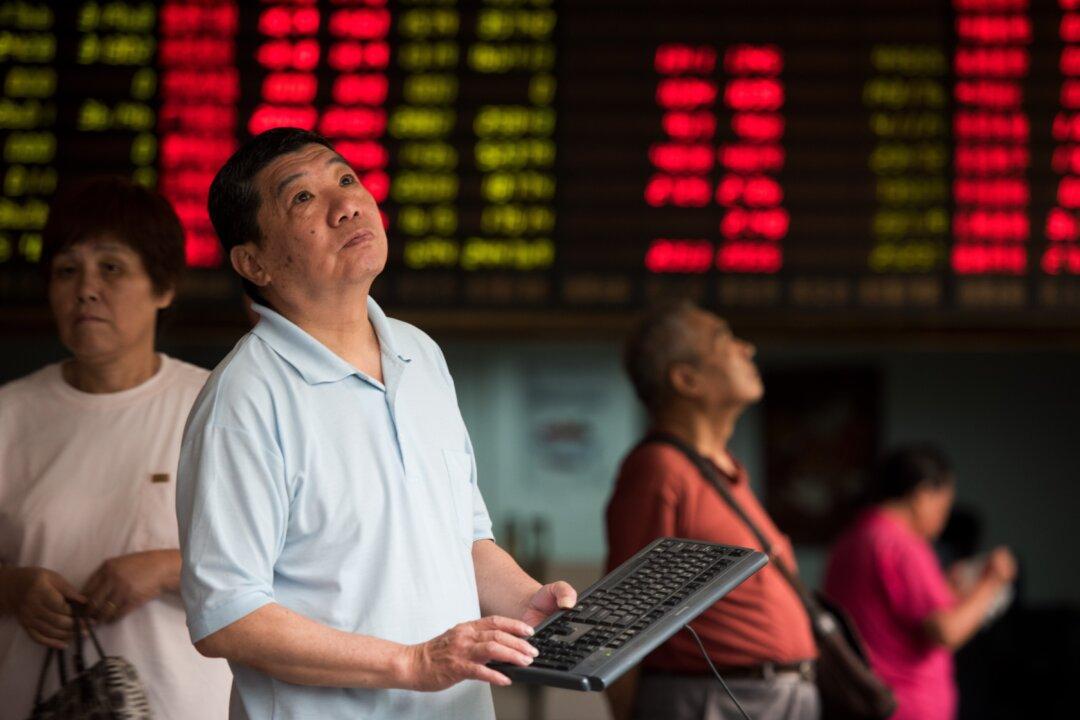China’s stock market has been relatively quiet since the big crash in June and July. It seems that period of quiet has come to an abrupt end with the shares crashing 6.15 percent on Aug. 18.
One thing China always had going for itself was stability. Real estate bubble? No problem, the regime will stabilize it. Excess capacity and rampant deflation? No problem the regime can handle it.
Stock market? No problem the regime can prop it up.
Currency? Pegged to the dollar, nothing to worry about—at least not until Aug. 11.

China's stock market in Shanghai crashed 6.15 percent Aug.18, 2015. Google





